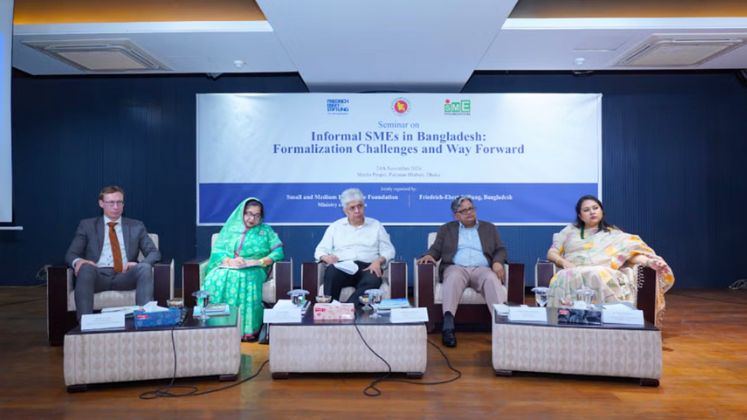
A recent report by the SME Foundation has shown that 57 per cent of small and medium enterprises (SMEs) surveyed have cited the existing tax structure as the primary obstacle to conducting business in compliance with the law. The findings were presented at a seminar, titled Informal SMEs in Bangladesh: Formalization Challenges and Way Forward, held in Dhaka.
The investigation, led by Melita Mehjabeen, a professor at the Institute of Business Administration (IBA) at the University of Dhaka, revealed that 54 per cent of entrepreneurs identified the trade license renewal process as the next significant barrier. Other concerns included the additional costs associated with trade licenses, highlighted by 51 per cent of respondents, and the complex legal and regulatory landscape, noted by 44 per cent.
Mehjabeen’s research involved a survey of 304 entrepreneurs from major cities including Dhaka, Chittagong, Sylhet, Khulna, and Rajshahi. Among the entrepreneurs surveyed, over 74 per cent expressed a desire to operate their businesses in accordance with government rules and regulations. However, Mehjabeen emphasised the need for simplifying these regulations, suggesting the introduction of one-stop services, collateral-free loans, and enhanced incentives for compliant businesses.
The study further elaborated on the bureaucratic challenges faced by SMEs, noting that while only seven certificates from various government departments are needed to operate legally in India, businesses in Bangladesh require permissions from around 34 departments.
As many SMEs remain informal, they often operate outside the tax net, raising concerns about their integration into the formal economy. Mehjabeen called upon the government to devise a comprehensive strategy to bring these businesses under existing frameworks, encouraging their formalisation through a combination of monetary and non-monetary incentives.
The significance of SMEs in Bangladesh’s economy is underscored by the Planning Division, which reported that they accounted for approximately 25 per cent of the country’s GDP in 2018. Additionally, a 2022 World Bank report noted that SMEs represent about 90 per cent of global businesses and contribute over 50 per cent of employment, with their share in the formal sector reaching up to 40 per cent of GDP in emerging economies.






